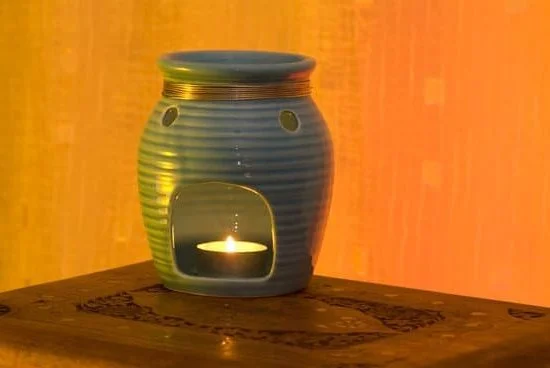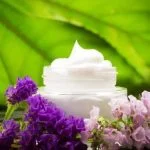Are you wondering, “how long does aromatherapy take to work?” Aromatherapy is a holistic healing treatment that uses natural plant extracts to promote health and well-being. This introductory section will provide an overview of the potential benefits of aromatherapy on the mind and body, as well as an explanation of how aromatherapy works on a physiological level.
Aromatherapy is a practice that has been used for centuries across various cultures for its therapeutic properties. It involves the use of essential oils extracted from plants to improve physical, emotional, and mental health. From stress reduction to improved sleep quality, the benefits of aromatherapy are vast and varied, making it a popular alternative therapy for many individuals seeking natural remedies.
On a physiological level, essential oils interact with the body and brain through inhalation or topical application, triggering chemical reactions that can have therapeutic effects. The science behind aromatherapy involves the stimulation of smell receptors in the nose, which then send messages to the limbic system – the part of the brain that controls emotions and memories. As a result, different essential oils can evoke specific emotional or physiological responses in the body.
Understanding the Science Behind Aromatherapy
Aromatherapy is a holistic healing treatment that uses natural plant extracts to promote health and well-being. The practice of aromatherapy involves the use of essential oils, which are extracted from various parts of plants and then used to enhance physical, mental, and emotional health. When inhaled or applied to the skin, these essential oils can have a range of therapeutic effects.
The physiological effects of aromatherapy are deeply rooted in the science of how our sense of smell interacts with our brain and body. When we inhale essential oils, odor molecules travel through the nose and affect the olfactory receptors, which are directly connected to the limbic system – the part of the brain that controls emotions, memories, and behavior. This connection between smell and brain activity is what makes aromatherapy so effective in addressing emotional and mental health concerns.
In addition to its impact on mood and emotions, aromatherapy also has physical benefits. Certain essential oils possess antimicrobial properties that can help fight off bacteria and viruses when inhaled or applied topically. Furthermore, some essential oils can also have anti-inflammatory effects when absorbed into the skin or through inhalation. Understanding how these interactions take place on a physiological level provides insight into how long aromatherapy takes to work for different individuals with diverse health conditions.
- Consider individual factors such as sensitivity to smells
- Take into account existing health conditions
- Pay attention to environmental factors influencing its effectiveness
Factors That Influence the Effectiveness of Aromatherapy
When it comes to the effectiveness of aromatherapy, several factors can influence the time it takes for this practice to work and produce noticeable effects. Understanding these influencing factors can help individuals tailor their aromatherapy experience to achieve the desired outcomes. Here are some key factors to consider:
- Individual Sensitivity: People vary in their sensitivity to smells, which can impact how quickly they respond to aromatherapy. Some individuals may be more receptive to the effects of essential oils, while others may require a longer exposure to experience benefits.
- Health Conditions: Certain health conditions may influence the body’s response to aromatherapy. For example, individuals with respiratory issues or skin sensitivities may need to approach aromatherapy with caution and consider alternative application methods that minimize potential discomfort.
- Environmental Factors: The environment in which aromatherapy is practiced can also play a role in its effectiveness. Factors such as air quality, humidity levels, and ambient temperature can affect how well essential oils disperse and interact with the body.
In addition, emotional and mental states can influence how long it takes for aromatherapy to work. Stress levels, mood, and overall mental wellness can impact an individual’s receptivity to the therapeutic effects of essential oils. By taking these factors into account, individuals can optimize their aromatherapy experience for maximum benefit.
Overall, understanding how these individual factors influence the effectiveness of aromatherapy can help individuals navigate their wellness journey with essential oils more effectively. Whether seeking relaxation, stress relief, or other therapeutic benefits, considering these influencing factors can enhance the overall success of an aromatherapy practice.
Different Methods of Aromatherapy Application
Inhalation
Inhalation is one of the most common methods of aromatherapy application. This can be done by inhaling essential oils directly from the bottle, using a diffuser to disperse the oils into the air, or adding a few drops onto a cloth or tissue.
When inhaled, the aromatic molecules travel through the nasal passage and stimulate the olfactory receptors. From there, they can have a direct impact on the limbic system of the brain, which plays a role in emotions, behavior, and memory.
Topical Application
Another method of aromatherapy application is through skin absorption. Essential oils can be diluted with a carrier oil and applied to the skin through massage or as part of skincare products. The molecules of the essential oils are small enough to penetrate the skin and enter the bloodstream, allowing for systemic effects. However, it’s important to note that depending on which areas of your body you apply them, different rates of absorption will occur.
Ingestion
While ingestion is a less common method of aromatherapy application due to safety concerns and risks associated with improper usage, it is possible to use essential oils internally under the guidance of a qualified aromatherapist or healthcare professional. When ingested, essential oils enter the bloodstream through digestion and can have systemic effects on various body systems. It’s crucial to only ingest essential oils that are specifically labeled for internal use and always consult with a professional before doing so.
Understanding these different methods and their potential impact on how long it takes for aromatherapy to work is crucial when incorporating essential oils into your wellness routine. Each method has its own rate of absorption and effectiveness, so it’s important to choose the right one based on your individual needs and preferences.
Time Frame for Aromatherapy to Work
Aromatherapy has been recognized for its potential to promote relaxation, reduce stress, and alleviate various physical and mental health symptoms. However, one common question that arises when considering aromatherapy is: “How long does aromatherapy take to work?” Understanding the time frame for aromatherapy to take effect can help individuals manage their expectations and make informed decisions about incorporating this practice into their wellness routine.
Variables That Influence Aromatherapy’s Effectiveness
Several factors can influence how long it takes for aromatherapy to produce noticeable effects on the mind and body. Individual variables such as sensitivity to smells, overall health condition, and environmental factors can play a role in determining the time frame for experiencing the benefits of aromatherapy. For example, individuals with heightened sensitivity to scents may respond more quickly to aromatherapy compared to those who are less sensitive.
The Role of Different Application Methods
The method of application also plays a significant role in determining how long it takes for aromatherapy to work. Inhalation, diffusion, topical application, and ingestion are some of the common methods used for applying essential oils in aromatherapy.
Each method has a unique impact on the body’s absorption rate and can influence how quickly the therapeutic effects are experienced. For instance, inhalation methods such as using diffusers or personal inhalers may lead to faster onset of effects compared to topical applications.
Typical Time Frame for Aromatherapy Effects
On average, the effects of aromatherapy can be noticeable within minutes to hours after application or inhalation. However, individual responses may vary based on factors mentioned earlier. In some cases, consistent use over time may be necessary before significant improvement or relief is experienced. It is important for individuals to be patient and allow sufficient time for the therapeutic properties of essential oils to take effect.
Common Effects of Aromatherapy
Aromatherapy can have a range of effects on the body, mind, and emotions. The use of essential oils in aromatherapy can promote relaxation, reduce stress and anxiety, improve sleep quality, alleviate pain, and enhance overall well-being. These effects are achieved through the inhalation or topical application of essential oils, which then interact with the body’s chemistry and neurological pathways to produce therapeutic benefits.
Physically, aromatherapy can have analgesic (pain-relieving), anti-inflammatory, and antimicrobial effects. For example, inhaling lavender essential oil has been found to reduce perceived pain levels in individuals undergoing medical procedures. Mentally and emotionally, certain essential oils like bergamot and ylang-ylang have been shown to have mood-enhancing properties and may help minimize symptoms of depression and anxiety.
In addition to these direct effects, aromatherapy can also indirectly impact overall health by promoting better sleep quality and reducing stress levels. When used consistently as part of a wellness routine, aromatherapy has the potential to contribute to an improved sense of well-being over time.
| Effect | Examples |
|---|---|
| Pain relief | Lavender oil for headaches |
| Stress reduction | Bergamot oil for anxiety |
| Sleep improvement | Chamomile oil for insomnia |
Tips for Maximizing the Effects of Aromatherapy
Aromatherapy can be a powerful tool for promoting relaxation, improving mood, and even addressing certain physical complaints. However, the effectiveness of aromatherapy can vary depending on several factors. If you’re wondering how long does aromatherapy take to work, it’s important to consider these variables in order to maximize its benefits.
One of the key factors that influence the effectiveness of aromatherapy is the quality of the essential oils being used. Higher quality oils that are pure and free from contaminants tend to produce more pronounced effects in a shorter time frame. Additionally, individual factors such as sensitivity to smells and overall health condition can play a role in how long it takes for aromatherapy to work.
Another important consideration is the method of application. Different techniques – such as inhalation, diffusion, topical application, and ingestion – can impact how quickly the therapeutic effects of essential oils are felt. For example, inhalation methods like using a diffuser or inhaling directly from the bottle may provide more immediate results compared to topical application or ingestion.
Creating a conducive environment for aromatherapy is also crucial in maximizing its effects. This includes ensuring proper ventilation for inhalation methods, using appropriate dilution and carrier oils for topical application, and selecting safe ingestion methods if applicable. By paying attention to these details, individuals can experience the benefits of aromatherapy more effectively.
| Factor | Effect |
|---|---|
| Quality of essential oils | Influences potency and speed of effects |
| Method of application | Affects how quickly therapeutic effects are felt |
| Environment | Influences overall effectiveness |
Conclusion and Recommendations
Aromatherapy is a holistic healing treatment that uses natural plant extracts to promote health and well-being. The use of essential oils in aromatherapy can have a range of potential benefits for the mind and body, including stress relief, improved sleep, and enhanced mood. The practice has been around for centuries and continues to be popular as an alternative therapy for various ailments.
Aromatherapy works by stimulating smell receptors in the nose, which then send messages through the nervous system to the limbic system – the part of the brain that controls emotions. This process can lead to the release of chemicals such as serotonin, which can have a positive impact on mood and overall well-being. Additionally, when essential oils are absorbed through the skin or inhaled, they can interact with the bloodstream and have physiological effects on the body.
The effectiveness of aromatherapy can be influenced by several factors such as individual sensitivity to smells, pre-existing health conditions, and the environment in which it is practiced. These factors can impact how long it takes for aromatherapy to work and produce noticeable effects.
Additionally, different methods of applying essential oils, such as inhalation, diffusion, topical application, or ingestion, can also affect the time it takes for aromatherapy to take effect. Overall, understanding these influencing factors can help individuals maximize the benefits of aromatherapy in their daily lives.
Answering Your Common Questions About Aromatherapy
In conclusion, aromatherapy is a holistic practice that offers a wide range of benefits for both the mind and body. The science behind aromatherapy explains how essential oils interact with the body and brain to produce therapeutic effects, highlighting the potential for improved mood, reduced stress, and relief from certain physical ailments. However, the effectiveness of aromatherapy can be influenced by individual factors such as sensitivity to smells, health conditions, and environment.
When it comes to the question “how long does aromatherapy take to work,” the time frame for noticeable effects varies depending on several factors. In general, some individuals may experience immediate emotional and mental benefits from inhaling essential oils, while others may require consistent application over time to see physical improvements. It’s important to consider personal health concerns and specific needs when exploring aromatherapy as a complementary wellness practice.
As with any holistic approach to wellness, there is no one-size-fits-all answer to how long it takes for aromatherapy to work. The diverse methods of application, individual responses to scents, and unique health conditions all play a role in determining the time frame for experiencing the effects of aromatherapy.
Despite this variability, many individuals have found significant relief and improvement in their overall well-being through consistent use of aromatherapy practices. Ultimately, it’s important to approach aromatherapy with an open mind and willingness to explore different techniques that best suit your individual needs.
Frequently Asked Questions
How Fast Does Aromatherapy Work?
Aromatherapy works relatively quickly, as the inhaled essential oils can have an immediate impact on the limbic system, which is responsible for emotions, memories, and arousal. This can lead to changes in mood and relaxation within minutes.
How Long Does It Take for Essential Oils to Work in Diffuser?
The time it takes for essential oils to work in a diffuser can vary depending on factors such as the size of the room, the type of essential oil used, and the individual’s sensitivity. Generally, it can take anywhere from 15-60 minutes for the aroma to fully disperse and start affecting the environment.
How Long Does It Take Essential Oils to Get Into Your System?
Essential oils can enter your system through inhalation, absorption through the skin, or ingestion. When inhaled, they can enter the bloodstream within minutes and start affecting your body’s systems.
When applied topically, it may take about 20 minutes for them to be detected in the blood. If ingested orally (which should only be done under professional guidance), it may take about 30-60 minutes for essential oils to reach peak levels in your system.

Are you looking for a natural way to improve your health and wellbeing?
If so, aromatherapy may be the answer for you.






